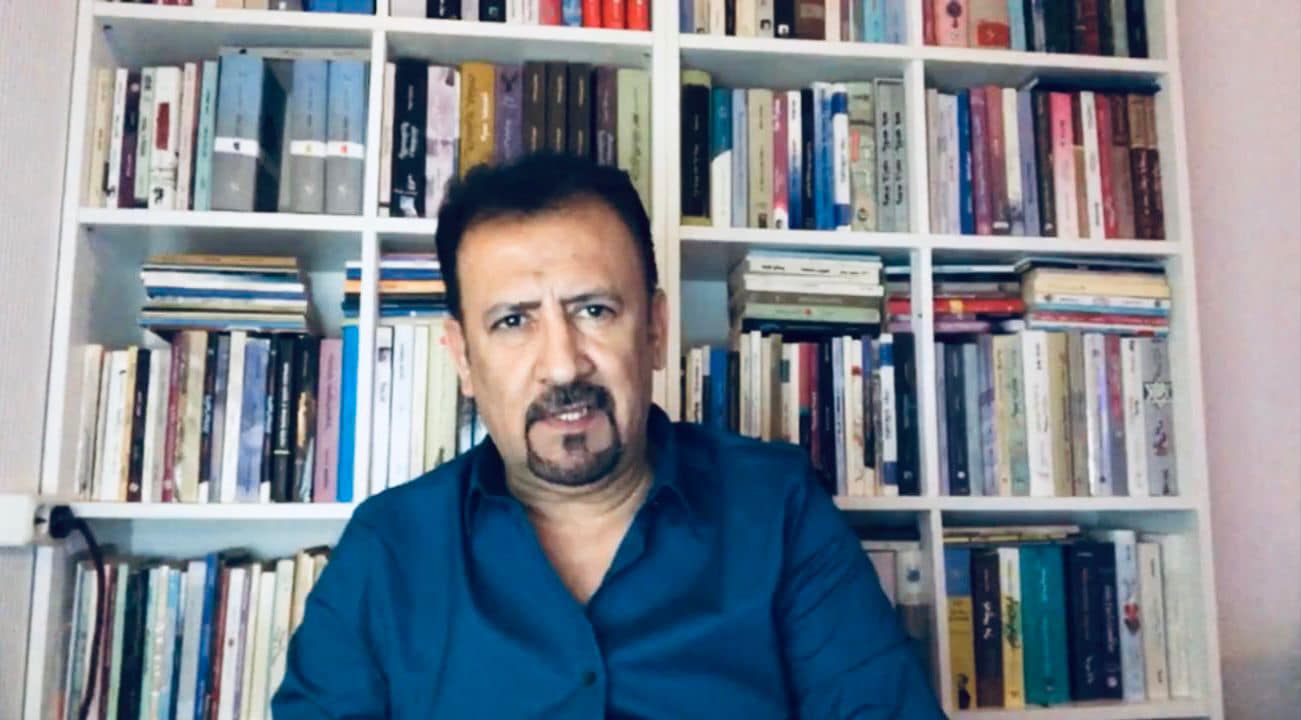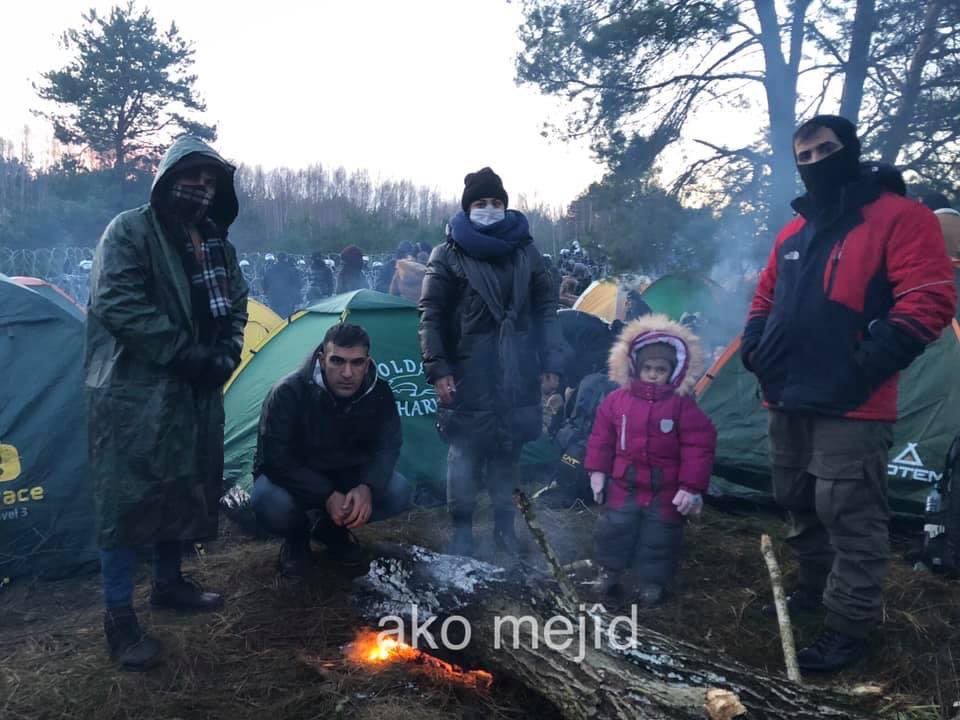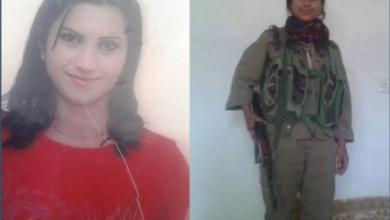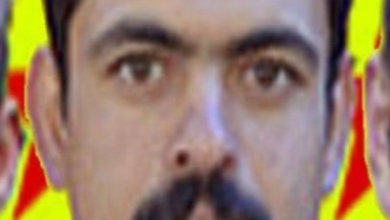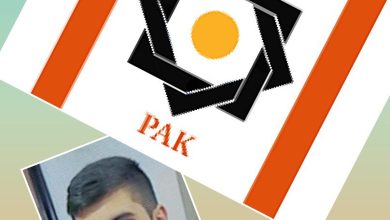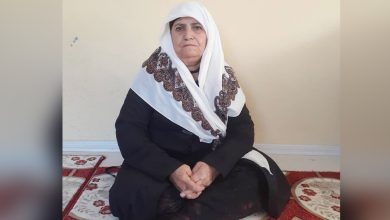Thousands of Kurdish migrants, including women and small children, are still trapped in the forests and swamps of the border region of Belarus and Poland with limited food, drink or medical care. They are desperately waiting for a chance to enter the European Union.
Most of them come from the Iraqi autonomous region of Kurdistan, but there are certainly smaller groups of Syrian and Iranian Kurds among them. The Iraqi Kurdish government has now repatriated an aircraft carrying 430 Iraqis. This, incidentally, does not seem to have been done entirely voluntarily.
Since Sunday, by the way, there have been plenty of protests in Iraqi Kurdistan again, for three days in a row now.
The issue of thousands of Kurdish refugees has struck a nerve with rival Kurdish groups. The Kurdish media are embroiled in a blame-game, with KDP-affiliated media outlets blaming the PKK, and vice versa.
In a good discussion with the well-known Kurdish political commentator Aram Ehmed, I try to delve deeper into the origins of the Iraqi Kurds’ problems. These problems began decades earlier, but are in fact the cause of the migrant crisis today.
Aram Ehmed works for several Kurdish-language media outlets, is regularly seen on Kurdish TV, and also distributes his analyses to tens of thousands of Kurdish followers via his own YouTube channel.
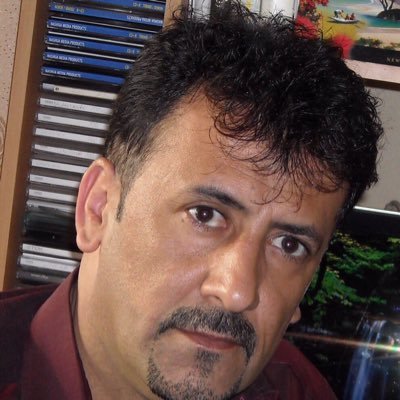
Why do the Kurdish parties blame each other, instead of actively solving the problems of these refugees?
“We can bring back many historical examples of the kind of thinking and functioning of these parties and their leaders. Mullah Mustafa Barzani, when he returned from the Soviet Union to Baghdad in 1958 after the “Islah al-Zara’i” decision of the Iraqi state against the aghas (in the feudal society, the aghas were the Lords, the landowners, and ruled over the rest of the population).
So these aghas fell, and the delegation went to Baghdad, where what they called the “revolution” against Baghdad began. And Mullah Mustafa Barzani became the first person in the party (KDP) and the first decision maker, This “revolution” lasted until 1975, when the agreement between the king of Iran and Saddam Hussein was signed in Algeria, The king of Iran gave Mullah Mustafa three ways to proceed, saying:
‘Firstly, you can surrender to Saddam, and I have agreed with him that he will forgive you everything.
Second, you can come to Iran. After all, we are both Aryan peoples, and we will provide for your livelihood.
Thirdly, you can continue your revolution, but we will no longer support you.’
Mullah Mustafa could have chosen the third option, but chose the second and surrendered to the Iranian army. At the time, Iran’s state newspaper Kayhan quoted him with a big headline, “Our work is done,” and even though dozens of military commanders were ready to fight on, Mullah Mustafa prevented them.
‘My people trust in me,’ he said, indicating that he had everything in his own hands.
So one sees that Mullah Mustafa and his friends appointed themselves commanders and leaders, but the moment they lost themselves and their revolutionary status against Baghdad, they readily said that the United States and Israel were to blame. And this remained the easiest way of doing things for them, always blaming third parties for their own problems and failures.
This is just one story, and there are dozens of proofs that the leaders of this party will never come to terms with failures that they themselves caused, but shift the blame onto other individuals, parties, countries, saying, “He betrayed us, lied to us, deceived us,” as if they themselves were not there, had not made any decisions, or had lost their minds….
Even when the PUK came into being under the leadership of Jalal Talabani, and there was a conflict with them. I am referring then to the civil war between PUK and KDP. No, that too the fault of Iran, or Turkey, and the Americans. The Kurdish rival parties killed more than 12,000 people at the Ibrahim Khalil border crossing (Iraq-Turkey border, near the town of Zakho) from late 1992 to 1997. At the end of this civil war, they then again said that it was the fault of Iran or Turkey that Kurds were killing each other, and that people were fighting against the PKK, which at that time was settling in the mountains in the border area. Later, a document was published in the Kurdish weekly “Levin,” which revealed that the KDP received $35 million from Turkey in exchange for this cooperation.
Since 1991, for thirty years, the KDP and PUK have been in power in the three major cities, Sulaimaniyah, Erbil and Duhok. In addition, they have had power in Kerkuk for a time, and their leaders were elected to the president of the Kurdish region, the prime minister of Iraq, the Kurdish parliament, the Iraqi parliament, the leading positions regarding security and the police. Political relations, economy, diplomacy, they control everything, they make all the decisions themselves. In short, they completely control all fronts in Iraqi Kurdistan. So then what is the crime of the PKK, if people are precisely trying to evade the comprehensive control of KDP and PUK? So these accusations do not fall well with these people, because these people know the truth well.
By the way, I myself am very critical of the PKK, but in my mind this party will not be involved in this refugee crisis, because it simply has nothing to do with it.”
But what are the people of Iraqi Kurdistan running away from, if not the PKK?
“The people of southern Kurdistan, or northern Iraq, are running away from the all-controlling power of the PUK and KDP, and from a wide range of injustices, such as the way all the country’s wealth ends up in the pockets of the PUK and KDP leaders. And especially the Barzani and Talabani families, who have no child without hundreds of millions of dollars in personal funds, and live like true kings. But the ordinary people there have no jobs, no electricity or even clean water, they are persecuted, they are arrested.
Erbil, Badinan and Sulaimaniyah have become military structures. And those who criticize them will learn their lesson in prison, or like Sardasht Osman, Soran Mama Hama, Kawa Germiyan, Wadad Hussein, and dozens of others will be murdered in the dark. More than 80 people are currently in Erbil and Duhok prisons just because they demanded jobs, bread and salaries.
Just fly to that area and ask, “Who wants to go to Europe with me?” In the first place, the rich will get on board, because ultimately they do not own their own wealth and money. After all, if the KDP and PUK ever want to take it from them, they will be forced to give up everything. Which means that even the rich people are not safe, and in danger if he no longer wants to be “the man of” the leaders.
I myself get many letters from people who greet me and say, “Sorry, dear Mr. Aram, we are in Erbil, in Duhok, or in Sulaimaniyah, or we are police officers, asayish employees, or civil servants, and therefore we cannot openly ‘like’ or comment on your work, because they will arrest and threaten us.”
So suppose you are a young man in Erbil, Badinan and Sulaimaniyah: how can you ask for your rights? If people are already in jail for a year because they posted a barf-smiley under a picture of Masoud Barzani, how can he not try to flee the country?
The PKK does not formulate politics in Iraqi Kurdistan, it has no economic structures there, the PKK is not the president of the region, the prime minister, or the speaker of the parliament, the PKK has no political and economic relations, the PKK does not possess secret services like the two repressive forces Parastin (security service of the KDP) and Zanyari (security service of the PUK), the PKK does not have asayish and police in Iraqi Kurdistan, so why should it be their crime when people flee from the KDP or PUK?
So they always do this, when they fail, when they are criticized, or attacked: they find a party to impose the fault, to escape from their sins, but that is really imaginary. They can’t do that, and people know the truth well.
In short, people are fleeing persecution, oppression, injustice and lack of bread, work and freedom. The perpetrators are from the Barzani, Talabani and PUK families, and therefore not closely related to the PKK.
If you have the government, the money, the power, the security and the police, if you take money from Baghdad, sell oil, have customs revenues and other internal revenues, and the people don’t benefit from it… If you oppress people, if you are unjust, and if you pay only half salaries, if people come on the street to ask for their rights and you shoot them and kill them, and put them in jail. Then who is guilty but yourself? Who is it? The answer is obvious!
Apart from the fact that Turkey and Belarus have certainly benefited from the living conditions of people in Iraqi Kurdistan, these people have become victims of their own government’s policies. Lukashenko, like Erdogan, wants to make the refugee issue a political bargaining chip for himself, put more pressure on Europe and force it to hear their demands.
These governments are not at all concerned about these people, these refugees. The game is totally clear a political game, and this is not the fault of those people, those people who are seeking refuge, a place of peace and humanity. But politicians do treat them that way, and that’s a shame.”
What do you think the future looks like for Iraqi Kurdistan?
“The existence of Iraqi Kurdistan is the product of the Gulf Wars, the product of the U.S. invasion (and its allies) after Saddam’s invasion of Kuwait. The policies of the Ba’athist government were the ultimate ticket given to the United States and its allies to come to the Middle East, and be able to implement a comprehensive and extensive restructuring in the Middle East, according to their own interests.
But thirty years have passed and the United States, like in Libya, Afghanistan, Yemen and Syria, has failed hook in Iraq. Which means that they have not been able to obtain exactly what they actually wanted.
So the existence of the KDP and the PUK as authorities in northern Iraq was the product of this war, and the autonomous region there they did not create themselves at all. Iraqi Kurdistan is the result of the US no-fly zone, at the 36th parallel and northward. The KDP and PUK themselves were unable to capture just one village.
Thirty years of failed rule and injustice, the lack of a unified political discourse because there is rather always a border between the zones of the KDP and the PUK, that the PUK and KDP are no longer political parties, but in fact companies. Self-enriching to the highest likes, and who the people despise by now. Duhok, the stronghold of the KDP, for example, had only 29% participation rate in the elections, and Erbil and Sulaimaniyah even much less than that. This is because PUK and KDP have made themselves ugly in the eyes of the people, and even in the eyes of Europe and the US.
KDP and PUK are going to face a dark future. They will either have to completely change course, or other parties will rise up, or go up in ashes, but they cannot continue like this.
Overall, Iraq itself is in danger as a state. Iraq is torn by corruption and political fragmentation. It is not clear how Iraqi Kurdistan will be restructured, and whether in the future the Kurdish region will fall entirely under “the hive” of Baghdad. The thing that currently keeps Duhok and Bahdinan afloat is Turkey, and in Sulaimaniyah Iran. But that the future looks bleak is clear….”

